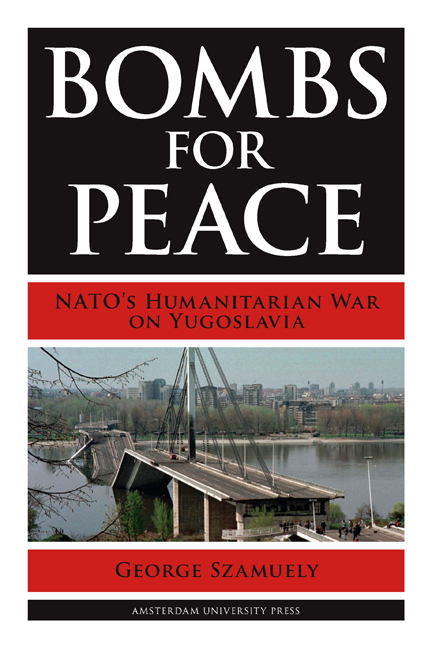Book contents
- Frontmatter
- Dedication
- Contents
- Acknowledgements
- Introduction
- 1 Yugoslavia: Destroying States for Fun and for Profit
- 2 In Search of the Good War: Bosnia: April 1992 to May 1993
- 3 Peacemaking v. Humanitarianism: Bosnia and Croatia: June 1993 to December 1995
- 4 Humanitarianism Fulfilled: Bosnia’s Unsafe Areas
- 5 Kosovo: The Denial of Sovereignty
- 6 Kosovo: The set-up
- 7 Kosovo: Standing up to the Yugoslav Goliath
- Conclusions: Ensuring Success by Lowering Standards
- Notes
- Select Bibliography
- Index
6 - Kosovo: The set-up
Published online by Cambridge University Press: 12 February 2021
- Frontmatter
- Dedication
- Contents
- Acknowledgements
- Introduction
- 1 Yugoslavia: Destroying States for Fun and for Profit
- 2 In Search of the Good War: Bosnia: April 1992 to May 1993
- 3 Peacemaking v. Humanitarianism: Bosnia and Croatia: June 1993 to December 1995
- 4 Humanitarianism Fulfilled: Bosnia’s Unsafe Areas
- 5 Kosovo: The Denial of Sovereignty
- 6 Kosovo: The set-up
- 7 Kosovo: Standing up to the Yugoslav Goliath
- Conclusions: Ensuring Success by Lowering Standards
- Notes
- Select Bibliography
- Index
Summary
The NATO – or U.S. – strategy (it was hard to distinguish the two) was the military equivalent of the current practice of U.S. capitalism: privatizing the gains and socializing the losses. The KLA, which was not a party to the Milošević-Holbrooke agreement, got a free pass. No matter what it did, it suffered no adverse consequences. Others, however, were not so fortunate. NATO focused its rage exclusively at the Serbs who, it fumed, were violating the Milošević-Holbrooke agreement. nato ignored the obvious point that the Serbs could scarcely remain indifferent to growing KLA violence.
NATO justified its unbalanced approach by claiming that it had no means of influencing the KLA. The KLA's takeover of Kosovo in October 1998, following the enforced withdrawal of the Yugoslav security forces, nato averred, was entirely the kla's own doing, not alterable by any Western importuning. The West simply had no means of exerting pressure on a paramilitary organization. NATO could remonstrate with KLA leaders but it couldn't force them to listen. On the other hand, the moment Yugoslav forces took action and sent the kla scurrying to the hills or across the border to Albania, the stability of the West was in peril. NATO, the world's guarantor of stability, had no choice but to issue its obligatory ultimatum and to place its military aircraft on standby.
While the ground and air verification missions imposed on Yugoslavia were supposed to “verify compliance by all parties with the provisions of unscr 1199,” the missions took care to monitor only the “compliance” of Yugoslavia's security forces and only their “compliance” with the Milošević-Holbrooke agreement. Since the KLA was not party to the Milošević-Holbrooke agreement, there could by definition be no KLA compliance to monitor. There was, of course, Resolution 1199, and the KLA, as NATO was only too well aware, was supposed to comply with that. Understandably, therefore, first the Clinton administration and then NATO changed the subject and stopped talking about Resolution 1199, focusing instead on the Milošević-Holbrooke agreement (even though no one knew precisely what was in it).
- Type
- Chapter
- Information
- Bombs for PeaceNATO's Humanitarian War on Yugoslavia, pp. 381 - 444Publisher: Amsterdam University PressPrint publication year: 2013



